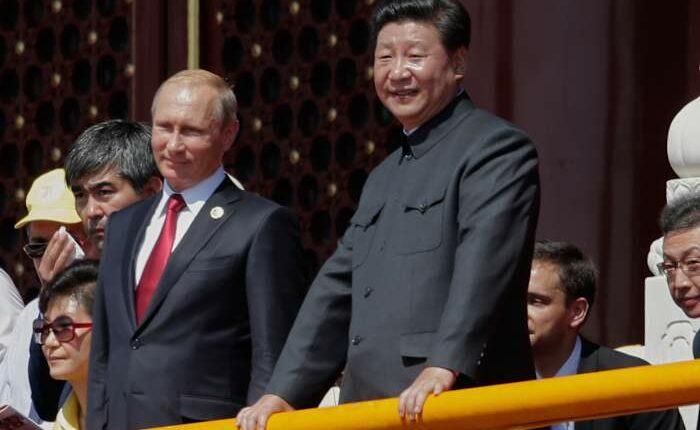Share this @internewscast.com

BENXI – As we reach eight decades since the conclusion of World War II, Japan and China are observing the anniversary through significant commemorations, though they vary in timing and manner.
Japan holds a somber remembrance on August 15, the date Emperor Hirohito announced Japan’s surrender over a crackly radio transmission. In contrast, China displays its military prowess with a parade on September 3, marking the formal surrender on an American battleship in Tokyo Bay.
During WWII, Japan’s severe and destructive occupation in China led to an estimated 20 million deaths, a historical scar that continues to strain China-Japan relations.
In Benxi, a Chinese museum focuses on the harsh realities faced by anti-Japanese fighters who endured frigid conditions in Manchuria’s log cabins before seeking refuge in Russia.
These fighters only returned with the Soviet Union’s entrance into the war against Japan, launching an attack on Manchuria on August 9, 1945—the same day the U.S. deployed an atomic bomb on Nagasaki—further pressuring Japan towards capitulation.
Today, China’s growing military ambitions in the Pacific provoke concerns, especially given its efforts to assert territorial claims. As Japan contemplates strengthening its defense, China’s response often cites Japan’s historical military aggressions.
“We urge Japan to deeply reflect on its historical culpability, earnestly draw lessons from history and stop using hype over regional tensions and China-related issues to conceal its true intent of military expansion,” Chinese Foreign Ministry spokesperson Guo Jiakun said last month.
Japan’s surrender broadcast
Hirohito’s prerecorded surrender broadcast on Aug. 15, 1945, was incomprehensible to many Japanese. He used arcane language and the sound quality was poor.
What was important, historians say, was that the message came from the emperor himself. Hirohito was considered a living god, and the war was fought in his name. Most Japanese had never heard his voice before.
“The speech is a reminder of what it took to end the wrong war,” Nihon University professor Takahisa Furukawa told The Associated Press in 2015.
The current emperor, Hirohito’s grandson Naruhito, and the prime minister are set to make remarks at the annual ceremony in Tokyo on Aug. 15, broadcast live by public broadcaster NHK.
At last year’s event, Naruhito expressed deep remorse over Japan’s actions during the war. But on the same day, three Japanese cabinet ministers visited Tokyo’s Yasukuni shrine, drawing criticism from China and South Korea, which see the shrine as a symbol of militarism.
China marks Victory Day
Japan surrendered on Sept. 2, 1945, in a ceremony on board the American battleship USS Missouri.
The foreign minister, in a top hat and tails, and the army chief signed on behalf of Hirohito. The signatories on the other side were U.S. Gen. Douglas MacArthur and representatives from China and other nations that had fought Japan.
China designated the next day, Sept. 3, as Victory Day.
Eleven years ago, the Communist Party stepped up how China marks the anniversary. All of China’s top leaders, including President Xi Jinping, attended a commemorative event on Sept. 3. The renewed focus came at a time of rising tension with Japan over conflicting interpretations of wartime history and a still-ongoing territorial dispute in the East China Sea.
The next year, China staged a military parade on the 70th anniversary of the end of the war.
A decade later, preparations are underway for another grand parade with missiles, tanks and fighter jets overhead. Russian President Vladimir Putin is among those expected to attend.
Copyright 2025 The Associated Press. All rights reserved. This material may not be published, broadcast, rewritten or redistributed without permission.











